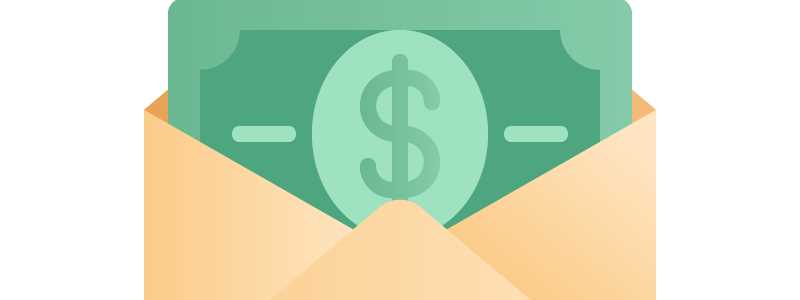
9 Factors That Affect Your Insurance Premium
One of our basic needs now is security. And that is absolute. Insurance is a service that offers security in areas that occur outside our control or predictions. In this article, we will give some things that we need to consider about the insurance we have. There are essentially nine factors that affect your insurance premium, some of which you can control and some of which you cannot. Yes, that is the condition your home is in.
1. Something That You Can Control
Yes, that is the condition your home is in. Since your homeowner’s insurance will be covering many of the contents of your home, how new certain aspects of your home are will change what the premium will be. For example, if you have a water heater that is 25 years old and is need of a change, your insurance premium will be higher than if you have a water heater that is 5 years old. While the home insurance won’t cover the replacement cost if that water heater breaks, it will cover any water damage that may result if the water heater cracks or leaks water. Think about the roof in the same way.
Some other aspects of your home’s age and condition you can’t really control, such as the quality of the frame, the wiring system (for the risk of fire), and for those you just have to accept what you have.
2. Something That You Can’t Control
On the East coast, brick is the preferred method of construction because there aren’t that many earthquakes and the home is generally subjected to more wind, snow, and hail damage - things that brick is very good at handling. Move a brick home to San Francisco and the frequent earthquakes will likely take the house down. On the West coast, a home built on a frame and more able to handle the shaking of an earthquake, is far cheaper to insure than one made of brick - which doesn’t take to shaking.
There are other aspects of construction that are important as well such as the existence of a basement. Since the basement is underground, it typically requires a sump pump of some kind in order to protect against the rising water table. If there is a heavy rain and an power outage, such that the sump pump no longer works, we’re talking about the potential for a flood to damage parts of or contents in the home.
3. How Safe Your Home Is.
I know that with my homeowner’s insurance from Travelers, I was given a discount because I have an alarm system in place from ADT. While the fee for the ADT services is greater than the discount offered by my insurer, they did offer me a slight discount just for having it. The same applies for other security and safety measures such as integrated fire and smoke alarms, sprinklers, motion detectors, etc.
There are also some aspects that you can’t really control but they are important when you go and buy a house. Proximity to a fire hydrant and the fire department itself is of paramount importance to an insurance company.
4. Do You Smoke?
Smoking is one of the leading causes of fires in the home, whether it’s someone smoking in bed and dozing off or if they just threw a butt into the trash, and so a few insurers offer discounts if no one in the home smokes.
5. Whether You Are In a High Risk Area.
If you own a home in Florida, you likely are seeing huge premium increases last year and this year because of the recent rash of destructive hurricanes. If you live in California, you’ll likely see higher than average premiums because of the higher risk of earthquakes. Often times these large geographic regions and the risks involved will not play a factor in where you choose to buy a home because you will likely be buying a home near your place of work, but it’s important to remember how these decisions affect your premiums.
6. The Amount and The Scope of Your Homeowners or Renters Insurance Policy Coverage
Obviously the greater the coverage the more expensive the premium. Be sure to get coverage for those disasters that you need and to avoid getting the coverage that you are unlikely to ever use.
For example, you can avoid some riders if they don’t apply - such as jewelry riders. Don’t get insurance for items that you don’t want insured (duh!) but more importantly, don’t get insurance if it’s not necessary because you don’t have anything of significant value to protect.
7. Adjusting Your Claims Deductible.
Your deductible is how much you must pay out of pocket per incident before the insurance company will start making payments. For example, if you have a $1,000 deductible on your jewelry rider, the insurance company will pay out the amount of a claim minus that $1,000 amount. The higher the deductible, the less risk the insurance company is taking (since you won’t make any claims under $1,000) and so they are rewarding you, the policy holder, by reducing your premiums. In essence, you are being paid to assume that additional risk.
So, when you get quotes, adjust the deductible and see how it affects your monthly premiums. Sometimes it is worth it to adjust that deductible and sometimes it isn’t.
8. Either Add More Policies or Remain Loyal With The Insurance Company.
Loyalty refers to two things. The first is how long you’ve been with the insurance company and the second deals with how many policies you have with that company. A lot of insurers will give you a discount if you’ve insured with them for five years or more and almost all of them will give what’s called a multi-policy discount, to entice you to both stay and add more policies when you need them.
9. Retirement Discounts!
Some companies will offer discounts because they know that retirees are safe for a variety of reasons. For example, since retirees are home more often than non-retirees, they are able to respond to emergencies much faster than people who are not home at the time - such as fires, thefts, etc.
If you’re over 55, try asking your insurer if they’ll give you a discount, you never know!
-
 07/25/2024 4
07/25/2024 4 -
 07/23/2024 8
07/23/2024 8 -
 05/31/2024 100
05/31/2024 100 -
 09/05/2022 627
09/05/2022 627 -
 09/05/2022 665
09/05/2022 665 -
 09/05/2022 787
09/05/2022 787 -
 09/05/2022 654
09/05/2022 654 -
 09/05/2022 634
09/05/2022 634
-
 12/09/2016 5719
12/09/2016 5719 -
 03/22/2018 2868
03/22/2018 2868 -
 10/10/2016 2852
10/10/2016 2852 -
 01/09/2017 2766
01/09/2017 2766 -
 01/13/2017 2380
01/13/2017 2380 -
 01/13/2017 2378
01/13/2017 2378 -
 01/14/2017 2211
01/14/2017 2211 -
 11/01/2016 2178
11/01/2016 2178
FEATURED NEWS

Personal Finance

Personal Finance

Managed Funds

Insurance

Business





LEAVE A COMMENT